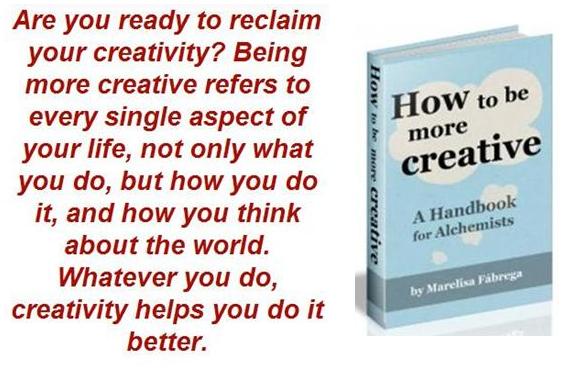
Sharpening the saw is about self-renewal and self-care.
Stephen Covey’s magnum opus, “The 7 Habits of Highly Effective People”, was first published over 25 years ago. However, its teachings remain as important today as they were then. This post deals with the seventh of these habits, which is sharpening the saw, or setting aside some time each day to renew yourself. Unfortunately, most people have trouble adopting this habit.
 After all, there’s always something else that needs to be done. How can you even think about sharpening the saw, when you’re always busy sawing? To use the seven-habits lingo, sharpening the saw is a Quadrant II activity. That is, it’s important, but it’s not urgent. Therefore, most people put it off, to their own detriment. Failing to devote some time daily for self-renewal will have a negative impact on your productivity and effectiveness, as well as on your levels of performance, in both the short and the long-term.
After all, there’s always something else that needs to be done. How can you even think about sharpening the saw, when you’re always busy sawing? To use the seven-habits lingo, sharpening the saw is a Quadrant II activity. That is, it’s important, but it’s not urgent. Therefore, most people put it off, to their own detriment. Failing to devote some time daily for self-renewal will have a negative impact on your productivity and effectiveness, as well as on your levels of performance, in both the short and the long-term.
Covey explains the seventh habit by using the analogy of a woodcutter. A woodcutter had been sawing out in the woods for several days straight. As the days went by he noticed that his productivity was dropping. It was getting harder and harder to saw with each successive day.
After all, the process of cutting dulls the blade. And, the duller the blade, the greater the effort that is required to keep sawing. The solution, of course, was for the woodcutter to stop periodically to sharpen the saw.
In much the same way, you can take steps to prevent burnout and to maintain peak performance by sharpening the saw. Sharpening the saw is about renewing the four dimensions of your nature:
- The Physical Dimension;
- The Mental Dimension;
- The Social/Emotional Dimension; and
- The Spiritual Dimension.
In this post you’ll discover ten ways to sharpen the saw for your physical dimension, and ten ways to sharpen the saw for your mental dimension. That is, you’ll find 20 habits of self-renewal. Choose the ones that appeal to you the most, and begin integrating them into your life, today.
Sharpen the Saw – Physical Dimension
1. Eat Healthy Meals. Eating a healthy diet is one of the best ways to keep your saw sharp. Healthy eating begins with the following:
- Cooking meals at home.
- Reducing your fat, sugar, and salt intake.
- Eating three servings of fruit and five servings of vegetables daily.
Improving your eating habits is good for your waistline, your physical health, your longevity, and even your mental health.
2. Drink Lots of Water. It’s vital to drink lots of water throughout the day. I know that when I’m really busy working on a blog post or on one of my eBooks, I’m tempted to ignore signs of thirst. However, when I’m not sufficiently hydrated I get tired and sleepy. Therefore, I now keep a water bottle with me at all times and take frequent drinks from it all day long.
3. Do Cardio. Cardiovascular activity is any activity that gets your heart rate to about 50 – 75% of your maximum heart rate. This includes walking, jogging, bike riding, taking an aerobics class, and so on. Doing cardio will do all of the following for you:
- Help you lose weight;
- Make your heart stronger;
- Increase your lung capacity;
- Reduce the risk of several diseases, including diabetes; and
- Allow you to release stress.
4. Lift Weights. I wrote about the benefits of lifting weights in my post, 8 Ways Lifting Weights Will Transform Your Life. Weight lifting will improve your health, your brain function, and your mood. It will even help you live longer.
5. Stretch. Stretching helps improve flexibility and increases your range of motion. It also helps you to prevent injury. Find a flexibility class–such as yoga or pilates–near your home, or do your own flexibility work for 45-60 minutes, at least once a week.
6. Get Enough Sleep. Most adults need about 7 hours of sleep to function optimally. You may be tempted to scrimp on sleep to get more work done, but don’t. Numerous studies have a found a link between insufficient sleep and serious health problems, such as hearth disease, diabetes, and obesity.
Making yourself sick for the sake of increased output–whether it’s business reports, blog posts, legal briefs, and so on–is not a smart strategy.
7. Take Breaks. You need to stop thinking that you’re too busy to take breaks. After all, the brain wasn’t made for extended focus. If you try to focus past your productivity zone you’re likely to start feeling anxious, unfocused, and even irritable.
Taking a break at the point in which your concentration begins to wane will allow you to return to your task, after the break, with renewed focus.
8. Breathe Deeply. Yoga philosophy claims that we are each allotted a certain number of breaths in our lifetime. Therefore, the deeper you breathe, the longer each breath will last, and the longer you’ll live. At the very least, deep breathing relieves stress, thereby reducing the negative effects of stress on your body.
9. Take a Nap. Dr. Sara Mednick, a psychologist at the University of California, Riverside and author of Take a Nap! Change Your Life, explains that a 20-minute nap can improve brain functions ranging from memory to focus and creativity. Here are three more benefits of napping:
- Napping reduces stress.
- Napping increases willpower.
- Napping has been linked to lower rates of cardiovascular disease and inflammation.
10. Go To a Spa. Every once in a while give yourself–and your body–a treat by spending the day at a spa. Nothing says pampering like getting a facial and an hour-long massage. If going to a spa sounds too self-indulgent, at the very least fill the tub at home with warm water, add scented bath salts, light a candle, and turn on some slow-tempo music.
Sharpen the Saw – Mental Dimension
11. Read. If you’re a knowledge worker–and I assume most people who read this blog are–your brain is your saw. And one of the best ways to keep your brain sharp is by reading. Specifically, by reading books that are challenging.
Reading books that are slightly above your current level of comprehension will force your brain to engage, which means that you’ll be giving your brain a good workout. Each time that you grasp a new concept, you’ll be pushing your brain up to a new level. An A+ brain will do wonders for your productivity.
12. Solve Puzzles. A study of American nuns and retired priests found that those who pursued various kinds of cognitive activity–including doing puzzles–were 47% less likely to develop Alzheimers than those who undertook such activities infrequently.
If you want to keep your brain sharp, take out your sudokus, crossword puzzles, and jigsaw puzzles, and start solving them.
13. Take Up a Hobby. As I wrote in my blog post, 16 Hobbies that Will Improve the Quality of Your Life, having a hobby has myriads of benefits, including keeping your mind sharp, increasing feelings of self-efficacy, and releasing stress.
There’s literally hundreds of hobbies you can choose from, so everyone will be able to find an activity that they’ll enjoy doing.
14. Observe the Secular Sabbath. Take off one day in seven. The busier you are, the more you need a day of rest. Unplug from work, the internet, your cellphone, and other everyday demands. So, what on earth are you going to do all day? Read, solve puzzles, and work on a hobby. 🙂
15. Take a Vacation. Modern life is stressful. And this stress is likely to take a toll on both your physical and mental health. Every once in a while we all need to hit the pause button for a week or two. That’s where vacations come in.
You can hit the beach, visit a foreign country, or just explore parts of your town you’ve never been to before. The idea is to break the stress cycle. After your vacation you’ll be ready to face your work with renewed gusto.
16. Update Your Skills. In order to do your best work you need to keep your skills and knowledge up-to-date. Although this is particularly important in rapidly-changing areas, such as technology, updating your skills is important in almost any field.
Here are some ideas on how to identify the skills or knowledge that you need to stay sharp:
- Recommendations from your boss.
- Recommendations from your mentor.
- Skills or knowledge that you need in order to be able to step up the ladder (hint: What does your boss know how to do, that you don’t?)
- Skills or knowledge that your co-workers possess, but you don’t.
- Skills or knowledge that you need to be able to complete your projects well and effectively.
- Skills or knowledge that you need in order to get additional certifications which would make you more valuable to your company.
- Skills or knowledge that would allow you to provide a better service to your clients or customers.
- Skills or knowledge that would allow you to apply for a job in another company that you have your eye on.
17. Take Time to Think. Every once in a while you need to stop and take time to think. Specifically, you need to think about the following:
- Setting goals and planning how to achieve them.
- Measuring your progress on the achievement of your goals.
- Evaluating each area of your life, including health, relationships, finances, and so on.
In addition, in Covey terms, ask yourself the following: Is my ladder leaning against the right building?
18. Have a Morning Routine. Start each morning by performing a group of habits which will allow you to greet the day at the top of your game. This can include having a green smoothie, letting natural light shine on your face, and writing down affirmations.
Create a morning routine that’s the equivalent of starting each day with a saw-sharpening session.
19. Have a Night Routine. Just as it’s important to sharpen your saw in the morning, it’s also important to sharpen it at night. Create and follow a night routine that will help you end the day right, while simultaneously setting you up for success the next day.
20. Exercise Your Creativity. Even if your job–or the service that you provide–requires mostly logic and analytical thought, you need to keep your right-brain hemisphere sharp. After all, you never know when you’ll need to devise a creative solution for a problem or come up with a great idea.
Fortunately, there are many ways to reawaken your right brain. Working on creative projects won’t just give your right-brain a work-out; it will also give your left-brain some rest.
Conclusion
As you can see from the 20 habits outline above, there are plenty of ways to sharpen the saw in both your physical dimension, and in your mental dimension. In another post I’ll share with you 20 habits to sharpen the saw in your emotional/social and spiritual dimensions.
Live your best life by sharpening the saw.




Related Posts:





 Marelisa Fabrega is a lawyer and entrepreneur. She holds a Bachelor of Science in Business Administration from Georgetown University in Washington, D.C., as well as a Juris Doctor from the Georgetown University Law Center. You can learn more about her
Marelisa Fabrega is a lawyer and entrepreneur. She holds a Bachelor of Science in Business Administration from Georgetown University in Washington, D.C., as well as a Juris Doctor from the Georgetown University Law Center. You can learn more about her 





